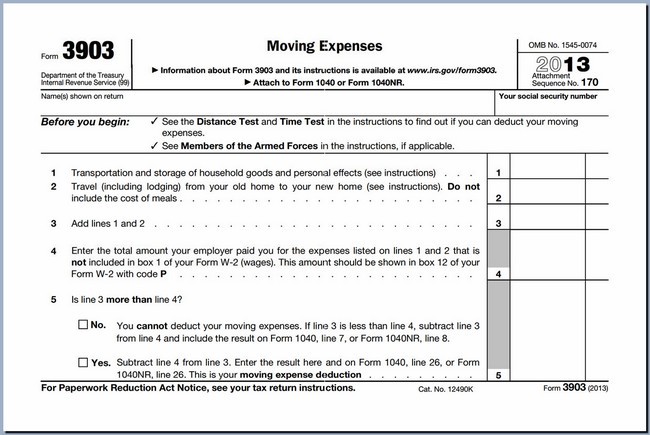Filing taxes is just about as fun as a moving without Moved. The silver lining: moving can be quite beneficial for your tax return!
Let’s break it down for you.
Do you qualify?
There are 2 things you have to keep in mind when determining whether you qualify for a deduction:
#1: The reason for your move.
The IRS only allows you to deduct moving expenses if your move was because of work. Sorry, your impromptu move to Montana to “find yourself” doesn’t count. But we support you. Do your thing! Therefore, the timing of your move must be closely related to the start of your new employment.
What exactly does that mean? The IRS’s standard is that you must1. start your job AND 2. work full-time for 39 weeks within the first 12 months after your move.The only exception to this is if you begin working BEFORE your family moves due to a special circumstance (like a family member receiving medical care, or a child waiting to finish school). Then you’ll still qualify.
#2: The distance you traveled.
According to the IRS, to deduct your moving costs, your new job must be AT LEAST 50 MILES further away from your OLD HOME than your old job. Easy enough, right?Let’s try to simplify that for you.
Basically, your move only qualifies if your new job is far enough that it would have been unreasonable to expect you to keep living in the same household and commute to work (a distance that they equate to 50 miles further than your normal commute).
For example: If your old place of employment was 10 miles away from your old home, your new place of employment must be at least 60 miles from your old home to qualify for the deduction. The only exception to this rule is for members of the military, who can deduct their moving expenses regardless of distance.
Got it? If not, here’s a simple calculation that can help:
Distance between OLD home and OLD job = A mi.
Distance between OLD home and NEW job = B mi.
B minus A must be greater than or equal to 50 mi.
What expenses qualify?
So you made it past step one. Phew!Now what expenses can you actually deduct? The IRS states that all the expenses you claim must be both REASONABLE and NECESSARY to your move. Very vague, huh?
Reasonable things may include the cost of gas mileage, boxes, rental trucks, movers, storage, etc…basically the things you generally would associate with moving. For longer trips, this may also include hotel lodging, tolls, and parking fees.
Note: The IRS includes a standard mileage rate you can use when calculating the cost of gas mileage. This rate is 18 cents/mile for 2018. You are more than welcome to calculate your actual transportation costs and use that instead.
How do you file for the deduction?
To formally file for the tax deduction, you have to complete a Form 3903, pictured below and linked here.
The form is fairly straight forward. Mover fees, shipping and storage costs go on line 1; travel, lodging, and gas costs on line 2; reimbursements from your employer for any moving expenses on line 4. Sites like TurboTax and TaxAct will also guide you through this form.
If your reimbursements from your employer happened to be greater than your moving expenses, then your move is not tax deductible, and you will have to claim the excess as taxable income. If the opposite is true (which we assume it is if you’re reading this), then you can deduct your excess expenses to reduce your taxable income.
Thanks for reading! If you liked this post, please recommend or share it with others. 🙂
Want to talk? Connect with Moved on Facebook, Twitter, and Instagram!


